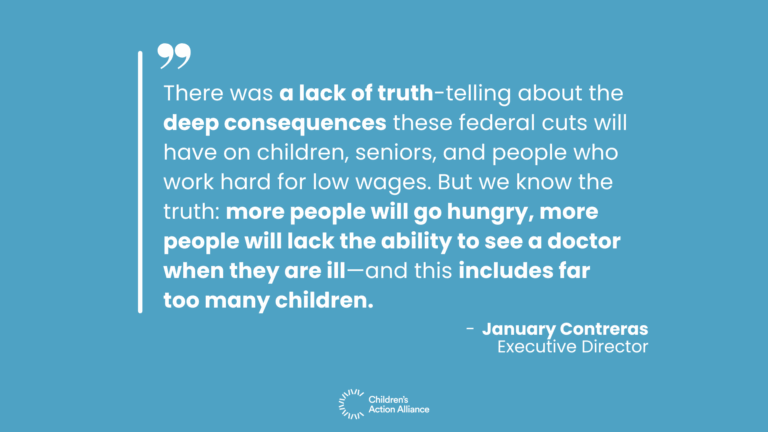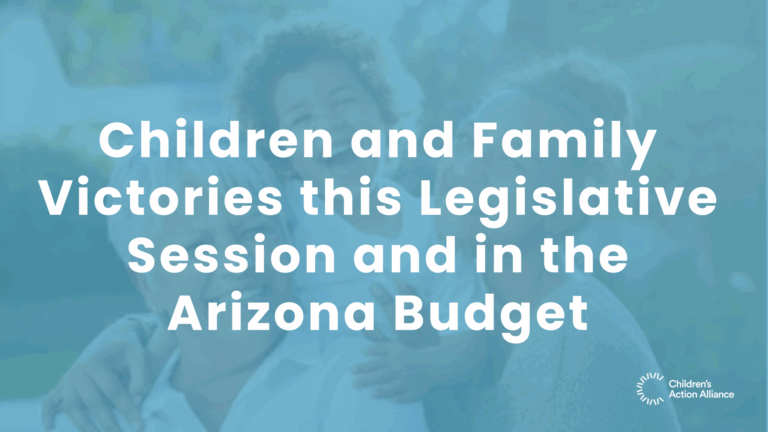
More than 80,000 Latino Children in Arizona are Uninsured
UnidosUS and the Georgetown University Center for Children and Families co-released a new report with a discouraging picture of Latino children’s health coverage in Arizona. The new report sends an urgent call to lawmakers to improve access to affordable health coverage for Latino children in our state during the pandemic. According to the CDC, over half of children (53 percent) diagnosed with COVID-19 in the US are Latino.
The report finds that more than 80,000 Latino children in Arizona are uninsured. This represents a rate of 10.4 percent, significantly higher than that of non-Latino children in Arizona at 6.3 percent. Latino children are more than 1.5 times more likely to be uninsured than their non-Latino peers and children who identify as both American Indian/Alaska Native and Latino are more than 3 times as likely to be uninsured.
Though Latino workers have a higher participation rate in the labor market, they are significantly less likely to have access to coverage through employer-sponsored health insurance. For this reason, strengthening access to coverage must be an essential component of increasing health access for Latino children and curbing the disproportionate impact of COVID-19 on Latino children.
Arizona’s leaders can take these bold steps to make sure all children can access health care:
- Arizona’s Medicaid program should allow COVID-19 treatment provided in any setting to be covered by emergency AHCCCS.
- Arizona should invest in culturally-appropriate outreach and enrollment efforts and should raise awareness of the importance of health coverage for children of all ages.
- Arizona should adopt the Immigrant Children’s Health Improvement Act (ICHIA) Option in Medicaid and CHIP, which would allow AHCCCS and KidsCare to cover many more immigrant children. Additionally, state funds should be allocated to cover ALL Arizona children, regardless of citizenship status.
- Increase KidsCare income eligibility to the national median of 250 percent of the federal poverty limit, to extend coverage to many more uninsured children who fall just above the income threshold.
Policy decisions about coverage options, especially in times of crisis, have a profound effect on children and can intensify existing racial and ethnic disparities during a crisis. We must continue to raise awareness of the disproportionate impact of COVID-19 on communities of color and to push for solutions that directly address health inequities.



